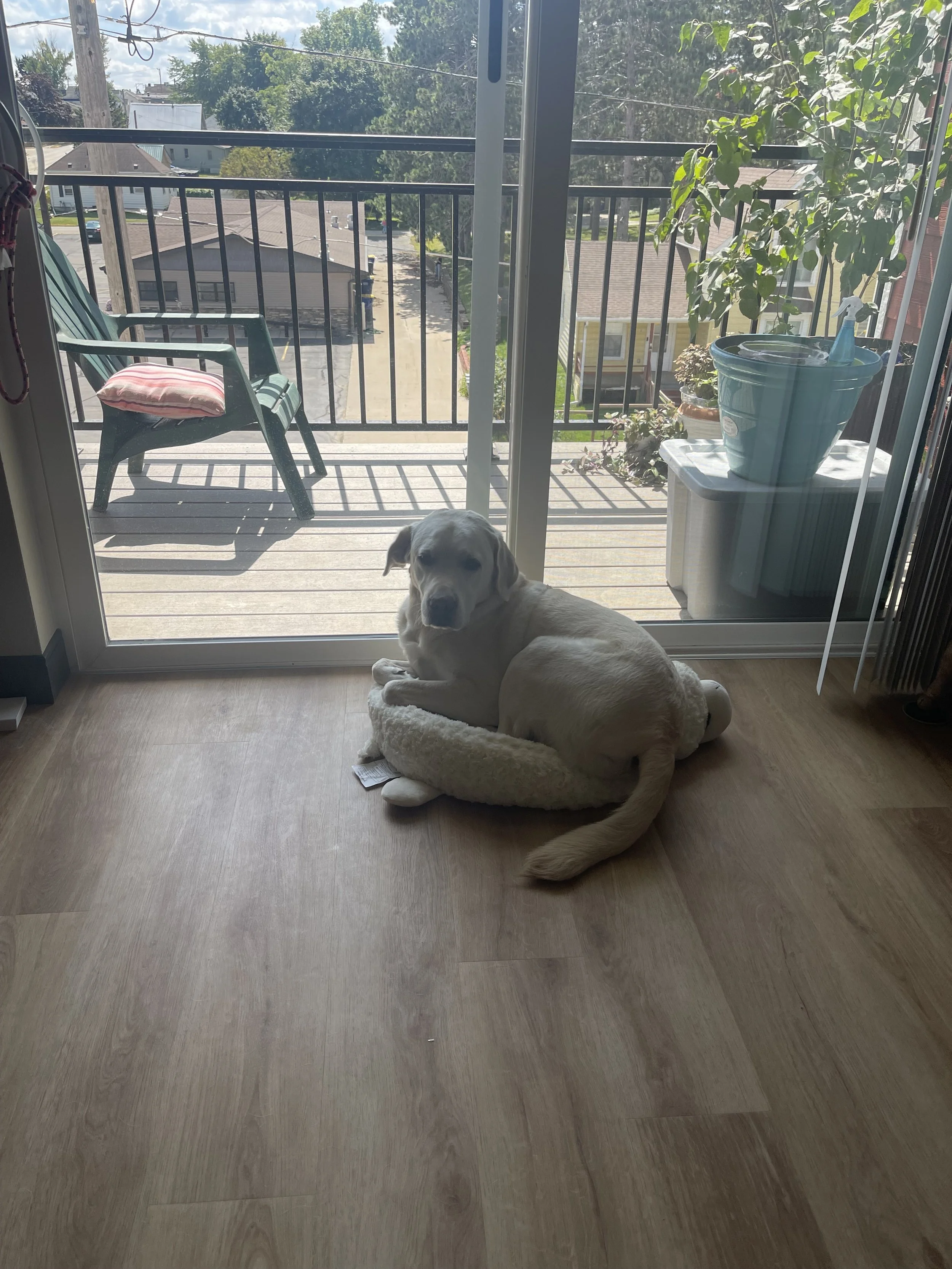Moving, Memories, and the Weight of Limitations
Kade in his new bed that ended up being 3 sizes too small!
Hi everyone,
I’m sorry it’s been a couple weeks since my last post. Life threw me a bit of a curveball—first with a stubborn cold that refuses to leave, and then with the whirlwind of packing, moving, and unpacking. I’m finally getting settled into my new apartment, and while that should feel like a fresh start, it’s been emotionally layered in ways I didn’t expect.
This move wasn’t just about changing spaces. My old apartment was the last place I lived with Nikita before she passed away. Every corner held echoes of our time together, and leaving it behind felt like closing a chapter I wasn’t quite ready to finish. Grief has a way of sneaking into the most practical tasks—folding towels, boxing up dishes, choosing which memories to carry and which to let go.
Moving also reminded me of how physically limited I am. I couldn’t lift boxes, rearrange furniture, or do the heavy lifting that comes with a new home. And while I had help, the feeling of uselessness crept in. It’s a familiar experience for many disabled people—especially in moments of crisis or transition, when physical tasks pile up and emotional needs run high.
One story that stuck with me was from Molly Burke, a YouTuber I admire. She shared how, when her boyfriend had to go to the ER, both he and her mother gently suggested she stay home. Logically, she understood. But emotionally, it was devastating. Wanting to be present for someone you love and knowing you physically can’t—it’s a kind of heartbreak that’s hard to explain.
Right now, I’m talking to a fellow disabled individual who’s stuck in a nursing home due to multiple health issues. I wish I could visit them, bring some joy, share a laugh in person. But the reality is, making that six-hour drive would require someone to help me get there, stay with me, and drive back. It’s a big ask. And even when people say “I’d do anything for you,” there’s still the weight of logistics, time, and their own lives to consider.
As much as our loved ones try to remind us how much we mean to them, facing our own physical restrictions is never easy. It’s not just about what we can or can’t do—it’s about how those limitations shape our relationships, our independence, and our sense of self-worth.
But here’s what I’m learning: showing up doesn’t always mean being physically present. Sometimes it’s a phone call, a message, a shared memory. Sometimes it’s simply letting someone know they’re not alone. And sometimes, it’s being honest about what we’re struggling with—because vulnerability is its own kind of strength.
Thanks for reading, and for holding space with me. If you’ve ever felt this way—or found creative ways to stay connected despite limitations—I’d love to hear your story. Let’s keep showing up for each other, in whatever ways we can.
